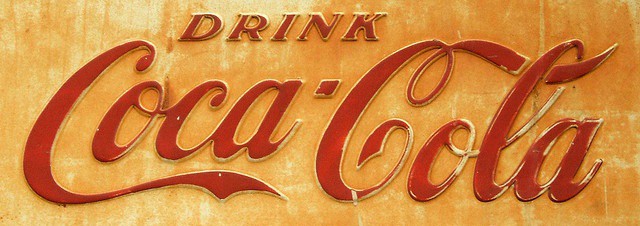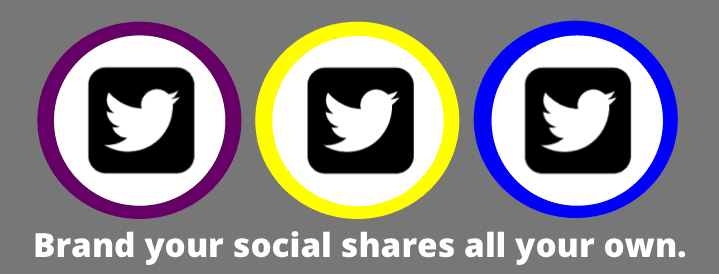’cause social media matters. Get our share buttons now.
When people see, hear or experience your brand, what is their response? Most businesses want their target audience to make a purchase or call. Powerful branding is a strategic way to trigger that response.
“Your brand is not only the quality of your products and services, it’s the overall impression your public gets from the marketing and interaction with the brand,” says branding expert Michael Toebe, Conflict Management Strategist & Practitioner.

What do you want people to think, see, hear, or feel when they experience your brand?
Answering that question is the first step to developing a strong brand for your business.
The Psychology of Branding
Branding is about conditioning your target audience to associate your company with a response, specifically something impactful and relevant that speaks to their needs or concerns.
Let’s use the famous example of Pavlov’s dog.
When Pavlov presented his dog with a bowl of food, the dog salivated as a natural response. Pavlov discovered that any object or event which the dogs learnt to associate with food, such as a bell ringing, would trigger the same response. Whenever he gave food to his dog, he also rang a bell. After repeating several times, he rang the bell without giving the dog food. The bell on its own now caused the dog to salivate.
Okay so what does this have to do with branding?
If the dog represents your target audience and the salivation represents the response of your target audience, what does the bell represent?
The Answer: Your Brand
Can Powerful Branding Increase Revenue?
To some companies, the idea of branding may seem intangible or immeasurable but marketers and business owners continue to believe that branding is monetarily valuable. Branding is a great way form trust, loyalty and differentiate your company from the competition.
“People want to be loyal. You just have to give them one good reason, maybe two to do so. Powerful branding is a great doorway to that mission,” says Toebe.
Branding expert, Michael Baggs, believes that the value of branding comes into play in the long run.
“You may make a single purchase from someone based on a review or offer, but you make repeat purchases and become an advocate because a company offers more than that,” says Baggs.
In order to successfully cash in on branding efforts, Dave Wakeman, Principal of Wakeman Consulting Group, says you need to equally focus on the sales process.
“Powerful branding can and does increase revenue, but not in a vacuum. You need strong branding and a good sales process so you can take advantage of the increased amount of interest that a strong brand brings to you,” says Wakeman.
Branding Your Business
Branding is not an easy, one-time task. A successful brand is consistent and memorable while adaptable to the changing market and the needs of its consumers.
“As a business, there are a multitude of challenges in developing a brand. A business must be able to reflect the needs of whatever market they are tending to, no matter the rate of change,” says Steve Woda, Co-founder of uKnow.
Competition brings in a whole other set of challenges. If 500 companies have the same product and the same target audience, how do they differentiate their brands?
“Sure, you may operate a landscaping company, but what is the brand? Is it an eco-friendly operation that appeals to suburban soccer moms, a low-cost solution for first time home owners looking to spruce up plain yards, or something else entirely?” says Nick Schneider, content writer for DMG Bluegill.
There’s also the element of likeability and trust. The concept of human personality is difficult enough to understand let alone company personality. What kind of personality is right for your business? How do you show that personality?
“Creating a brand that is both visually appealing and representative of a company’s personality is extremely difficult and requires consistent nurturing,” says Lauren Witte, Associate Director of Marketing & Client Services at Jackson White P.C.
How to Brand Your Business
So we now know why branding is so important, especially in competitive markets. If two companies offer the same product, the consumer is going to choose the company with which they have a prior positive association.
So how do you brand your business? Common answers include: through my high quality product or through our values and mission statement. Not exactly.
To quote Maya Angelou, “people will forget what you said, people will forget what you did, but people will never forget how you made them feel.” That’s what branding is all about.
Social Media and Branding
Shoplet, an online retailer of over 400,000 office products and other consumables, uses social media to publicize important brand initiatives and company news. For example, Shoplet announced that, after 19 years, it was going to implement a new, green and industrial logo.
“The transition away from our old, red logo was dramatic.” Shoplet’s CEO and founder, Tony Ellison continues, “but, thanks to our marketing team’s understanding of social media, we were able to introduce & celebrate our new logo with a series of Shoplet promotions and giveaways. Social media has made our rebranding initiatives as a smooth and natural as possible.”
Social media is a great way to reach a new group of targeted consumers. Advertising and management strategies on platforms like Facebook and Linkedin make it easy to target specific demographics like age, industry and interests.
How to Use Social Media to Brand your Business
A social media presence does not equate to branding but social media can be used as a tool for nurturing and promoting your brand.
“The social profiles a company maintains can further the brand’s imagery, iconography, tone of voice and brand/product persona into the ongoing conversations of the public in ways direct mail, websites and print can only dream of achieving,” says Michael Baggs, Social Media Expert (you can follow him @thecharmofbirds).
If your brand were a person, who would (s)he be?
Personality should be carried through the voice of a brand in every single message to consumers. It allows people to connect with your brand on an emotional level.
“Social media is essential for brand-building, as it is the most important and effective way to connect with consumers and give the company a human voice,” says Grainne Kelly, Founder of BubbleBum.
It’s easier for people to connect with a personality rather than business copy and sales fluff. A lot of companies use humor to connect with their audience.
“It is also important to post funny, inspirational, and uplifting content that your consumers can really connect with, as they can easily be turned off if you constantly post promotional business-related content. In your posts, make sure to also ask your followers for comments and opinions to get a conversation going and to bring them back to the pages often,” says Kelly.
JT Tran is a branding expert and author of I Did It My Way: The Modern Asian Man’s Guide to Complete Social Success. Tran believes that the best method of social media brand promotion is word of mouth and viral circulation. “Going viral is free, and it has the potential reach millions more than a purchased ad or promoted post. Every image share is another link back to your page; choosing humorous images that are in line with your company philosophy is a good way to get your brand known,” says Tran.
Brand recognition is one of the most satisfying phenomenon, especially as a marketer. Perhaps the best part of using social media for branding is being able to track your success through network analytics and other tools like Google Analytics. Look for website visits, social shares and sales coming in from your social profiles.
How do you craft a killer brand using social media?
Alyssa Mattero is the Senior Manager of Social Content at Perfect Search.
MARKETERS: Interested in writing for the Shareaholic blog? See our guidelines.
Also, we are hiring engineers! Join the family. Let’s grow Shareaholic together.



